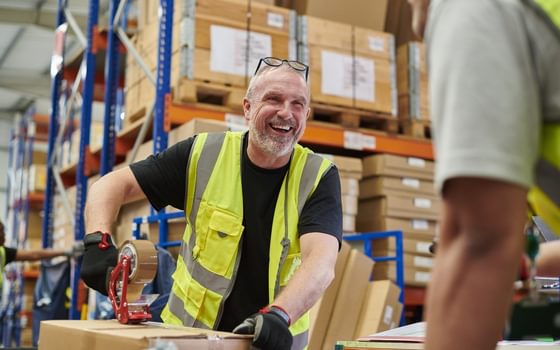Deliveroo: the next battle for the gig economy
Why the future of the delivery service matters to all of us
08 November 2016
Tonight, just ten days since the landmark ruling on the rights of Uber drivers, a new front is opening in the battle for workers in the gig economy to take control of their working lives.
Drivers for the Deliveroo food delivery service are holding a public meeting in London inviting wide public support to help them gain union recognition. It comes a week before the drivers will carry out their final push to get over 50% of their drivers in the London Borough of Camden signed up to the IWGB union, forcing formal union recognition from their employer Deliveroo. This would make Deliveroo the first app-based employer to recognise a union in the UK.
Inviting public support for the unionisation of workers in this way is a compelling new solution to the problem of isolation and division in the workplace. The casual, temporary and shift based nature of work in the gig economy means people no longer meet colleagues at work in the way that they used to. This isolation makes it more difficult to organise or to speak up about their working experiences and standards. And public meetings should just be the start. The next step could be for workers to seek support through conversations with customers on the doorstep and in taxis.
“What goes on in the gig economy matters to all of us”
And those conversations could be crucial for all of us, because what goes on in the gig economy is not just a concern to gig economy workers, it matters to all of us.

Photo: Sam Saunders
Workers in the UK already feel among the highest sense of job insecurity of any in Europe and work among the longest hours. Yet we have built a labour market that systematically strips all of us of control. Low unemployment figures mask a growing “precariat”: a group of people without the security of a regular wage, a pension or full employment rights. Of course, we are told by some of the companies involved that these new types of contract are giving workers more control, allowing them to choose when and how they work. But for most workers that flexibility is a fiction, masking a reality of low pay and poor rights that infects the British labour market far beyond the gig economy.
And there is one more, possibly surprising, reason why unionisation in gig economy is crucial to all of our futures: data.
Platform employers like Deliveroo and Uber now have access to an astonishingly forensic view of their workforce at a group and individual level and this is now becoming the norm across the world of work. More and more data is collected on every aspect of how, where and when individuals interact with their employer’s increasingly automated systems. Data mining techniques that were originally intended to give companies a better understanding of their customers are now being used to exert astonishing control over employees.
“For most workers flexibility is a fiction, masking a reality of low pay and poor rights”
The gig economy is at an advanced stage of developing automated HR functions because its digital model allows it, but the collection of big employment data is a wider trend. Before too long, multiple employers will be able to monitor workers in ways that are previously unimaginable, making the “time and motion” studies of the past pale into insignificance. The bleak reality of managers knowing precisely where workers are and what they are doing at each and every moment of the day and using that data to manipulate every aspect of their working lives to the benefit of the employer is now within reach.
The technology which allows this precision monitoring is not going to be stopped. The only way to ensure it is used fairly and equitably, is to make sure that workers currently on the digital frontline have enough power and influence to hold their employers to account. That way they can both secure the control over their own lives that they deserve and protect the rest of us from a truly dystopian future.
Topics Work & pay






